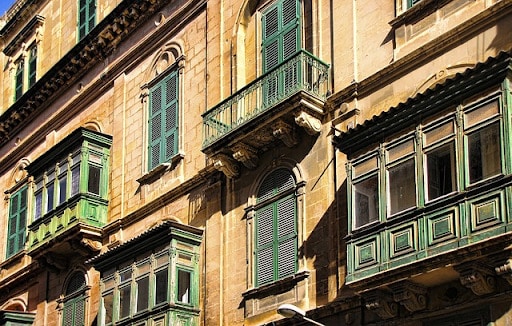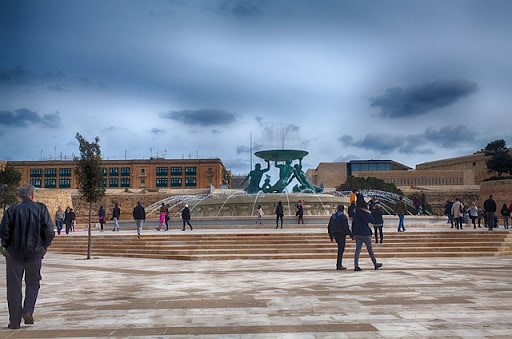In 2021, Malta replaced its Malta Residence and Visa Programme (MRVP) with the Malta Permanent Residence Programme (MPRP). This update introduced revised investment amounts, including higher government contributions to the National Development, Consolidated Fund, and Social Fund, along with increased property investment requirements and a mandatory charitable donation. These changes made the process clearer and more attractive for non-EU nationals obtaining a Maltese residence permit through investment.
In this article, you will learn about all the MRVP program changes, including:
- What is the Malta Permanent Residence Programme?
- Malta Residency and Visa Programme- Changes in Qualifying Investment
- Malta Permanent Residence Programme: Eligibility Criteria
- Costs of Malta Citizenship by Investment
- Malta Permanent Residence Programme Application Process
- The Malta Residence and Visa Programme Certificate
- How Long Is the Malta MPRP Valid For?
- Tax Scheme for Maltese Residents
What is the Malta Permanent Residence Programme?
The Malta Permanent Residence Programme (MPRP), also known as the Malta residency by investment program, allows non-EU nationals to obtain permanent residency in Malta through a qualifying investment. It offers visa-free travel within the Schengen Zone, access to Malta’s top healthcare and education, and the right to live indefinitely in a safe, EU country with a favorable tax system.
Introduced in 2021 to replace the Malta Residence and Visa Programme (MRVP), the Malta Permanent Residence Programme (MPRP) revised investment requirements, including higher government contributions to the National Development, Consolidated Fund, and Social Fund, property investment or rental, and a mandatory charitable donation. These updates strengthened the appeal of Malta’s permanent residence for non-EU nationals.
Malta Residency and Visa Programme- Changes in Qualifying Investment
The entire expenditure for Malta’s MRVP requirements is divided into three parts, as mentioned below. However, note that with the introduction of the Malta MPRP Programme, the requirements have changed slightly.
MRVP Program Vs. Malta MPRP Program
MRVP (Old program) | MPRP (New program, as of March 2021) | |
Government Contribution | - Applicants need to pay an amount of €30,000 - Please note that a non-refundable administrative fee of €5,500 will be charged upon the submission of the application - The contribution fee of €30,000 includes the applicant, his/her spouse and all eligible dependents - Upon inclusion of dependent parents and grandparents, a further contribution of €5,000 will have to be given per family member | - A contribution of €30,000 will be needed if the property is purchased. - In the case of rented property, €60,000 will be needed. |
Qualifying Property | - Purchase of property that is of a minimum value of €320,000 (€270,000 in few designated areas) OR - Lease agreement of a property that incurs an annual rent of €12,000 (€10,000 in few designated areas) - The applicant need to hold the property for a minimum of five years | - Candidates need to purchase property of a minimum value of €375,000. - Rent a property with a minimum lease value of €14,000. |
Qualifying Investment | - Investment of €250,000 in debt or equity securities listed on the official list of the Malta Stock Exchange - You can also invest on legal investment schemes that are recognized by the official list of the Malta Stock Exchange | - Candidates need to donate €2,000 to a local non-governmental organization registered under the Commissioner for Voluntary Organization, or approved agency |
Malta Permanent Residence Programme: Eligibility Criteria
The applicant should be 18 years and above
- The applicant should be a third-country national
- Proof of assets worth €500,000, of which €150,000 are financial assets OR €650,000 with €75,000 financial assets.
- The applicant should have a steady source of income to sustain themselves in Malta.
- The applicant should possess a medical health insurance scheme that covers the applicant and family on international waters.
- Submit a valid health certificate from a recognized health system/facility
- The applicant should not have any past criminal records
- The applicant must be able to communicate in Maltese or in English
- The applicant and dependents should be able to produce valid travel documents
Qualifying dependents
- Spouse or Civil Partner (including same-sex partners)
- Children under 18 years old
- Unmarried Children aged 18–29 who are financially dependent on the main applicant
- Dependent Parents and Grandparents with no age limit
- Spouse of an Approved Dependent
- Minor Children of an Approved Dependent Child and/or their approved spouse
Adult children 18–29 must be unmarried, childless, and financially dependent on the main applicant. Siblings are not eligible, even if dependent. Additionally, residency status can be passed to future generations, but additional contributions will apply.
Costs of Malta Permanent Residence Program
Here are the following investment costs to obtain residency in Malta:
- Submit a non-refundable administrative fee of €50,000.
- Lease a property for at least €14,000 annually in Malta.
- Alternatively, purchase a property for a minimum value of €375,000.
- Contribute €30,000 to the government if buying a property or €60,000 if renting.
- Donate €2,000 to a registered local NGO involved in philanthropy, culture, science, art, sports, or animal welfare.
- Pay an additional 10,000 for each child or adult dependent (parent or grandparent of the main applicant or their spouse), provided they are principally dependent on the main applicant.
You need to maintain the qualifying property for a minimum of five years, after which a residential address in Malta is required. Before applying, ensure you have valid travel documents and acquire a comprehensive health insurance policy covering all risks in Malta. You should also obtain travel insurance for journeys within the Schengen area.
Benefits of the Malta Permanent Residence Programme
The Malta Permanent Residence Programme offers a range of benefits, including:
- No minimum stay requirement: Maintain permanent residency without living in Malta year-round—ideal for frequent travelers.
- Visa-free Schengen travel: Enjoy easy access to 27 Schengen countries for business or leisure without additional visas.
- Attractive investment opportunities: Invest in Malta’s growing real estate market with commitments required only for the first five years.
- Tax-friendly environment: Benefit from Malta’s favorable tax system, with no inheritance, wealth, or real estate taxes. Foreign income is only taxed if brought into Malta, while foreign capital gains remain tax-free.
- No language requirement: There is no language requirement to obtain the residence permit. Additionally, English is one of Malta’s two official languages, making it easy for international residents to adapt.
- ETIAS and EES exemption: MPRP holders are exempt from upcoming ETIAS and EES travel requirements, ensuring smoother travel within the Schengen Zone.
- Permanent residency: Successful applicants receive a five-year residence permit, renewable indefinitely, providing long-term security and the right to live in Malta permanently.
- Family inclusion: Include spouses, children, and dependent parents under one application for a unified residency solution.
- High quality of life: Experience a Mediterranean lifestyle with access to a reputable health system
healthcare, education, and vibrant culture. - Safe and stable location: Malta ranks as one of the safest countries in Europe, with low crime rates and a secure environment.
Malta Permanent Residence Program Application Process

- Passport and ID
- Birth and marriage certificates (if applicable)
- Health insurance covering the EU
- Proof of income and financial stability
- Police clearance certificates (for the past 10 years)
- Source of funds declaration
2. Submit application & pay fees: A licensed agent applies to the Malta Residency Agency. A non-refundable application fee of €15,000 is paid upon submission. Initial processing takes 24 to 48 hours.
3. Due diligence checks: The Malta Residency Agency conducts background checks on financial records and criminal history. This stage takes 10 to 12 months.
4. Approval in principle: Once due diligence is completed, the applicant receives an Approval in Principle, confirming eligibility but requiring completion of financial commitments.
5. Make required investments: Within eight months, applicants must contribute €30,000 (if purchasing property) or €60,000 (if renting). Property must be worth at least €375,000 if bought or rented for a minimum of €14,000 per year. A €2,000 donation to a registered NGO and a remaining €35,000 administrative fee must also be paid.
6. Submit proof of investments: Applicants must submit documents proving property purchase or lease, government contributions, and NGO donation.
7. Final due diligence & residency certificate: The Malta Residency Agency conducts a final due diligence check after verifying investments. Once approved, the Certificate of Permanent Residence is issued.
8. Biometrics & residency cards: Applicants and their families must visit Malta to provide biometric data. Once completed, residency cards are issued.
9. Maintain compliance: To keep permanent residence, applicants must maintain their property investment or lease for a minimum period of five years and have valid health insurance.
The full process can take up to 12 months.
The Malta Permanent Residence and Visa Programme Certificate
The Malta Residence and Visa Programme certificate, which is a type of residence permit, plays a crucial role in the lives of those legally residing in Malta under this specific program. This certificate is not just a formal document; it symbolizes the holder’s right to live, work, and stay in Malta indefinitely, offering a semblance of permanence and stability akin to a similar status held by Maltese nationals.
When an applicant is approved under the Malta Residency and Visa Programme, they receive this certificate, which acts as a testament to their legal status in the country. This status is especially valuable for those looking for long-term residence in an EU country, providing them with a range of benefits and rights within Malta. Moreover, it allows the holder to travel within the Schengen Area, provided they have a valid travel document, like a passport.
How Long Is the Malta MPRP Valid For?
The Malta permanent residence certificate is initially reviewed after five years. During this time, authorities check if holders still meet the program’s criteria, such as maintaining their investment in real estate or government bonds. This ensures the program’s integrity and that benefits go to those who genuinely contribute to and reside in Malta.
After the first five years, the certificate is reviewed every five years. This ongoing review helps maintain the program’s standards and ensures that residents continue to meet the requirements to retain their status in Malta.
Tax Scheme for Maltese Residents
Malta’s tax system is based on residence or domicile, impacting those with Maltese residency or under the Malta Permanent Residence Programme. Those who establish tax residency may benefit from the remittance basis, where foreign income is taxed only if brought into Malta.
Tax Type | Details | Rate |
Income Tax | Taxed on income earned in Malta and, in some cases, worldwide income. | Rates increase with income. 0%–35% (progressive) |
Capital Gains Tax | Applied to profits from selling certain assets, like property. | 12% of transfer value or profit (whichever is higher) |
Remittance Basis Tax | For residents without permanent residence in Malta: only taxed on income brought into Malta. | Applies to remitted income only |
Value Added Tax (VAT) | Applied to most goods and services. Some items have reduced rates or exemptions. | 18% (standard rate) |
Property Tax | No annual property tax, but a 5% stamp duty applies when purchasing property. | 5% (on property value) |
Inheritance Tax | No direct inheritance tax, though related duties may apply in specific cases. | None (inheritance tax) |
Special considerations
- Principally dependent: For individuals with dependents, the tax system may offer certain deductions or allowances, depending on the nature of their dependency.
- Double taxation relief: Malta has agreements with many countries to avoid double taxation, ensuring that residents do not pay tax twice on the same income.
- Tax compliance: All residents must comply with Maltese tax laws and regulations and are required to file annual tax returns if they meet certain criteria.
As part of our commitment to providing transparent and reliable services, we are proud to be a licensed agent in Malta, holding the official license number AKM-AGEN. This certification demonstrates our dedication to the highest standards in the investment migration industry and further enhances our ability to offer expert guidance and support to our clients.
How Can Global Citizen Solutions Help You?
Global Citizen Solutions is a boutique migration consultancy firm with years of experience delivering bespoke residence and citizenship by investment solutions for international families. With offices worldwide and an experienced, hands-on team, we have helped hundreds of clients worldwide acquire citizenship, residence visas, or homes while diversifying their portfolios with robust investments.
We guide you from start to finish, taking you beyond your citizenship or residency by investment application.

Frequently Asked Questions About the Malta Permanent Residence Programme
How do I get residency in Malta?
To obtain residence in Malta, you can apply through the Malta Permanent Residence Programme (MPRP). This permanent residence programme involves meeting certain criteria, including financial investments and proof of assets. By fulfilling these requirements, you earn the right to reside in Malta, enjoying the benefits and quality of life the country offers.
Can I live in Malta after Brexit?
Yes, after Brexit, UK citizens can still live in Malta, but they must apply for residency under the new rules for non-EU nationals. Options include the Malta Permanent Residency Programme (MPRP) or other residency permits, which require meeting specific investment and financial criteria.
Does Malta offer permanent residency?
Yes, Malta offers permanent residency through the Malta Permanent Residence Programme (MPRP). This program allows individuals to gain long-term residency by meeting certain investment and financial requirements, including property investments and contributions to the government. It provides a pathway to live and work in Malta indefinitely.
What is the health insurance coverage amount that I need to have to apply for MRVP?
When applying for the MPRP, you must have a health insurance policy that covers health risks up to a minimum of €30,000 in the European Union. This coverage amount is also applicable to all your dependents, ensuring comprehensive health protection for your entire family while residing in Malta.
When was the Malta Residence and Visa Programme changed?
The Malta Residence and Visa Programme (MRVP) underwent a significant change on 29th March 2021. It was replaced with the new Malta Permanent Residence Program (MPRP), reflecting updates in the policies and regulations for applicants seeking residence in Malta.
What is the difference between MRVP and MPRP?
The main difference between the MRVP and the MPRP lies in the eligibility criteria, particularly regarding the cost and qualifying investments. The MPRP has introduced changes in these areas, including revised contributions to streamline the process and make it more accessible to potential applicants seeking residency in Malta.
Can foreigners get PR in Malta?
Yes, foreigners can obtain permanent residence in Malta through the Malta Permanent Residence Programme (MPRP). This requires meeting specific investment and financial criteria, such as making contributions to the government and investing in property. Successful applicants can enjoy long-term residency and access to various benefits in Malta.
Can I live in Malta permanently?
Yes, you can live in Malta permanently if you obtain permanent residency through the Malta Permanent Residence Programme (MPRP) or by acquiring Maltese citizenship. Permanent residency is granted for an initial five years, with subsequent reviews, while citizenship offers a lifelong stay with full rights.
What is the Maltese permanent residency program?
The Malta Permanent Residency Programme (MPRP) allows non-EU nationals to obtain long-term residency in Malta by meeting specific investment and residency requirements. Applicants must make financial contributions, invest in property, and fulfill other criteria, including a due diligence process. Successful applicants and their families receive life long residency, offering benefits like visa-free travel within the Schengen Area.
Is it easy to get permanent residence in Malta?
Getting permanent residence in Malta is not particularly easy, as it involves meeting strict investment and financial requirements, including contributions to the government and purchasing or leasing property. Applicants must also undergo thorough due diligence checks. However, for those who meet the criteria, the process is straightforward and offers long-term residency benefits.
How much to invest in Malta to get residency?
To qualify, applicants must pay a non-refundable €40,000 administrative fee, lease a property for at least €14,000 annually, or purchase property for a minimum of €375,000. Additionally, they must contribute €30,000 to the government if buying or €60,000 if renting, donate €2,000 to a registered local NGO, and pay €10,000 for each dependent parent or grandparent.

 Patricia Casaburi
Patricia Casaburi  The applicant should be 18 years and above
The applicant should be 18 years and above
